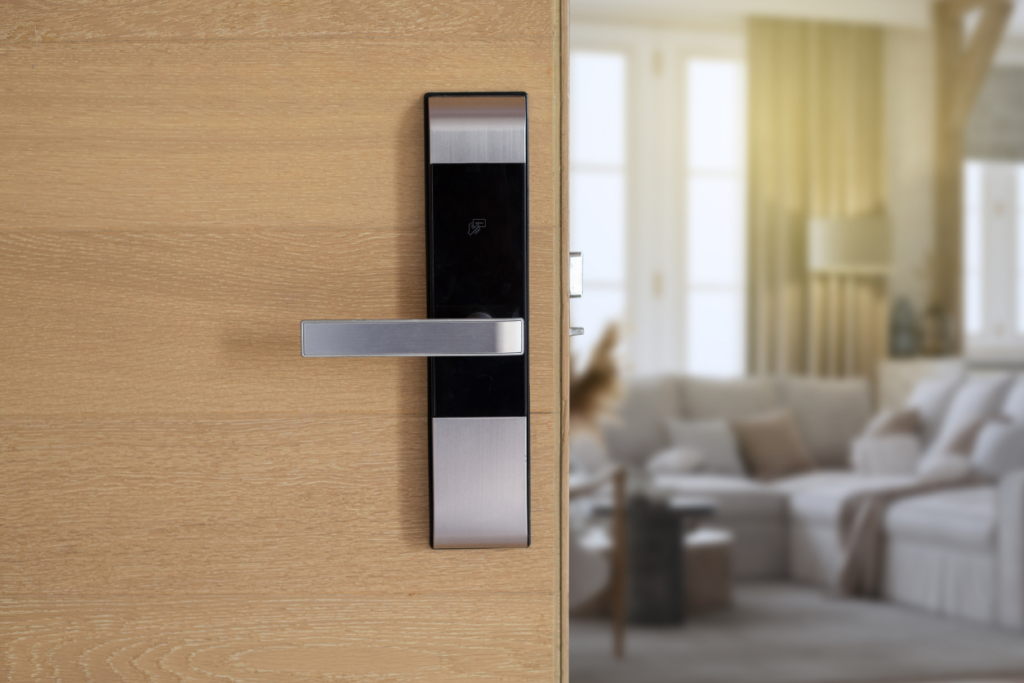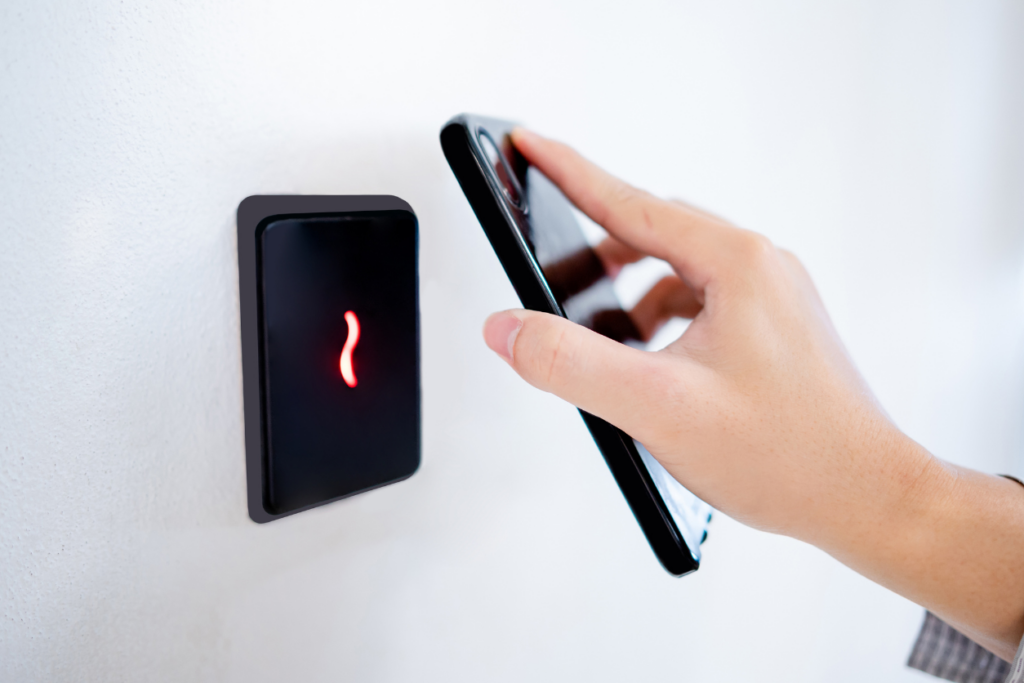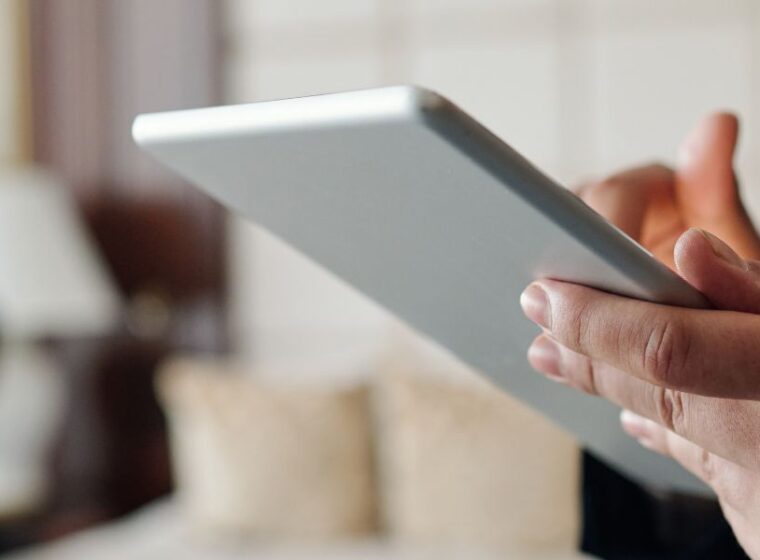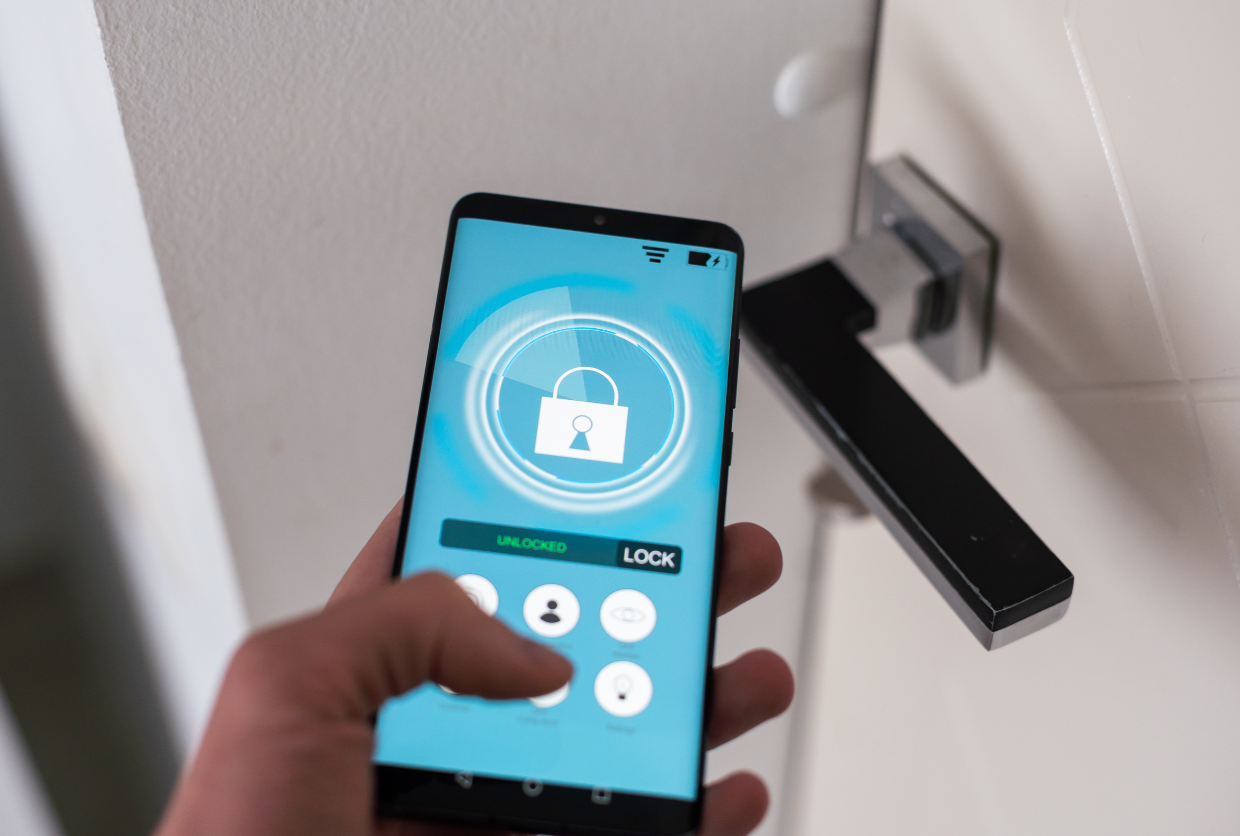The Benefits of Mobile Room Key Integration Into Guest Rooms
Mobile room keys have become a staple technology across many types of hotels. Global hotel chains like Marriott, IHG, and AccorHotels, as well as luxury resorts like The Ritz-Carlton, Four Seasons, and Mandarin Oriental, have all adopted mobile room keys for guests.
Using cell phones as hotel room keys has been shown to enhance the guest experience by providing added convenience. It’s also an investment that can improve operational efficiency, saving hotel staff time and resources, among other benefits.
While many hospitality providers are privy to such upgrades, seamless integration of mobile hotel room keys requires sufficient network infrastructure, not to mention proper setup. This guide takes a deep dive into mobile room key technology in hotels, how it works, and the upsides and downsides that hoteliers should be aware of.

How Mobile Hotel Room Keys Work
For many hotels, mobile room keys are replacing standard room card keys, which can easily become lost or stolen. Mobile keys work by utilizing Bluetooth or Near Field Communication (NFC) technology to turn a guest’s mobile phone into an operable room key. In addition to unlocking guest room doors, mobile keys can also provide access to other hotel facilities such as elevators, parking garages, fitness centers, pools, and more.
There are several working parts involved in this type of guest access technology. Here’s a step-by-step explanation of how it works.
1. Mobile Key Application
The guest downloads a mobile key application provided by the hotel onto their mobile device.
2. Integration with Property Management System (PMS)
The mobile key application is integrated with the hotel’s PMS. This integration allows for automated room key delivery and ensures a seamless check-in process.
3. Bluetooth or NFC Technology
The mobile key application uses Bluetooth or NFC technology to establish a connection between the guest’s mobile device and the door lock.
4. Unlocking the Door
When the guest approaches their room, they can open the mobile key application on their mobile device. They can then tap a button on the screen or hold their mobile device near the door lock.
5. Communication with the Door Lock
The mobile key application sends a Bluetooth signal or NFC signal to the door lock, which verifies the guest’s authorization to access the room.
6. Access Authorization
If the authorization is confirmed, the door lock receives the signal and unlocks the door, allowing the guest to enter their room.
The functionality of mobile keys may vary depending on the technology provider and hotel, but generally, the guest’s phone’s Bluetooth setting needs to be turned on for the keys to work.
Mobile key technology offers convenience and efficiency for guests, allowing them to bypass the front desk and head straight to their rooms.
What are the Benefits of Hotel Mobile Room Keys?
From improved security and guest experiences to reduced costs and plastic waste, mobile hotel room keys offer several notable benefits to both guests and hoteliers. Here are some of the key benefits of using mobile room keys:
Improved Guest Experience
Mobile room keys offer a more convenient and seamless check-in experience for guests, allowing them to bypass the front desk and head straight to their rooms. This can improve guest satisfaction scores and strengthen guest loyalty.
Personalization
A cell phone hotel room key app can offer greater personalization options for guests, such as receiving personalized recommendations for guest amenities.
Reduced Costs
Investing in mobile room keys can reduce costs associated with traditional plastic keycards and traditional keys. They can also reduce labor costs by streamlining the check-in process and reducing the need for staff to handle keycards.
Efficient Staff Training and Onboarding
Utilizing mobile room keys can simplify hotel operations and reduce the need for staff to handle keycards, which can make staff training and onboarding quicker and more efficient.
Improved Security
Mobile keys can offer increased security and reduce the risk of lost or stolen room keys. They can also provide access management that is easier and more efficient, allowing hoteliers to effortlessly verify identities and credentials.
Sustainability
Smartphone hotel room keys are widely considered a more sustainable alternative compared to plastic keycards and traditional keys, which can help minimize plastic waste and its environmental impact.
All and all, mobile room keys eliminate the need for physical keycards, reducing the time and effort required to manage and distribute them. This can alleviate the responsibilities of staff members who are typically involved in keycard management.
What Downsides Do Mobile Hotel Room Keys Have?
Mobile hotel room keys also have a few downsides that should be considered among hoteliers. These include:
Lack of Communication
With traditional check-in processes, guests have the opportunity to interact with hotel staff, ask questions, and receive personalized recommendations. Mobile room keys may eliminate or reduce these face-to-face interactions, which can impact the overall guest experience.
Reliance on Technology
Mobile room keys rely on technology, such as Bluetooth or NFC, to function. If there are technical issues or malfunctions with the mobile key system, guests may experience difficulties accessing their rooms. This can lead to frustration and inconvenience for both guests and hotel staff.
Implementation Costs
Implementing a mobile key system requires an initial investment in technology infrastructure and integration with the hotel’s property management system (PMS). This can involve upfront costs and potential challenges during the implementation phase.
Dependency on Mobile Devices
Mobile room keys require guests to have a compatible mobile device and the corresponding mobile key application installed. Guests who do not have a smartphone or encounter issues with their devices may face challenges in accessing their rooms. This can be a limitation for certain guests, such as older individuals or those who prefer not to use mobile devices.
Security Concerns
While mobile room keys can offer improved security compared to traditional keycards, there may still be concerns regarding the security of the mobile key system. Hotels and mobile key providers need to have robust security measures in place to protect against potential cyber threats and ensure the privacy and safety of guest information.
It’s important for hotels to carefully consider these downsides and address any potential issues to ensure a smooth and satisfactory guest experience. Proper training and support for both guests and staff can help mitigate these downsides and maximize the benefits of mobile room keys.

Hotel Technology Required to Support Mobile Room Keys
To support mobile room keys, hotels require specific technology and infrastructure. The necessary hotel technology to support mobile room keys includes:
Mobile Key Locks
Hotels need to install mobile key locks on their room doors. These locks are equipped with Bluetooth or Near Field Communication (NFC) technology, which allows them to communicate with guests’ mobile devices and unlock the doors.
Mobile Key Application
Hotels must have a mobile key application that guests can download onto their smartphones. This application serves as the interface for guests to receive and use their mobile room keys. It should be compatible with the hotel’s property management system (PMS) to facilitate automated key delivery and integration with other hotel systems.
Bluetooth or NFC Technology
Mobile room keys typically rely on Bluetooth or NFC technology to establish a connection between the guest’s mobile device and the door lock. This technology enables the seamless transmission of the digital key from the mobile device to the lock, allowing for door unlocking.
Integration with Property Management System (PMS)
The mobile key system needs to be integrated with the hotel’s PMS. This integration ensures that the mobile key application can communicate with the PMS to retrieve guest information, generate digital keys, and update room statuses in real time.
Secure and Reliable Infrastructure
Implementing a secure and efficient mobile room key system requires a consistent and reliable infrastructure. Hotels need to ensure that their network and server infrastructure can support mobile key technology and handle the increased data traffic. Security measures should be in place to protect against cyber threats and safeguard guest information
By having the necessary technology and infrastructure in place, hotels can effectively support mobile room keys and provide guests with a seamless and convenient check-in experience.
How Blueprint RF Support Mobile Room Key Systems
Blueprint RF provides wireless network solutions that support mobile room key technology. Blueprint RF’s hotel WiFi and internet services provide essential infrastructure for supporting mobile room key technology, which relies on a consistent and secure network connection.
Blueprint RF’s network solutions are backed by bandwidth management tools that help hotels optimize their network performance, ensuring mobile key systems operate smoothly and efficiently, without any disruptions or delays. Additionally, Blueprint RF’s network solutions include network monitoring tools that help hotels identify and address any issues that may arise with their network.
These network solutions prioritize cybersecurity and provide measures to protect against cyber threats. This is critical to ensure the safety and privacy of guest information. To learn more about how Blueprint RF can support your hotel’s mobile room key system, contact us.











